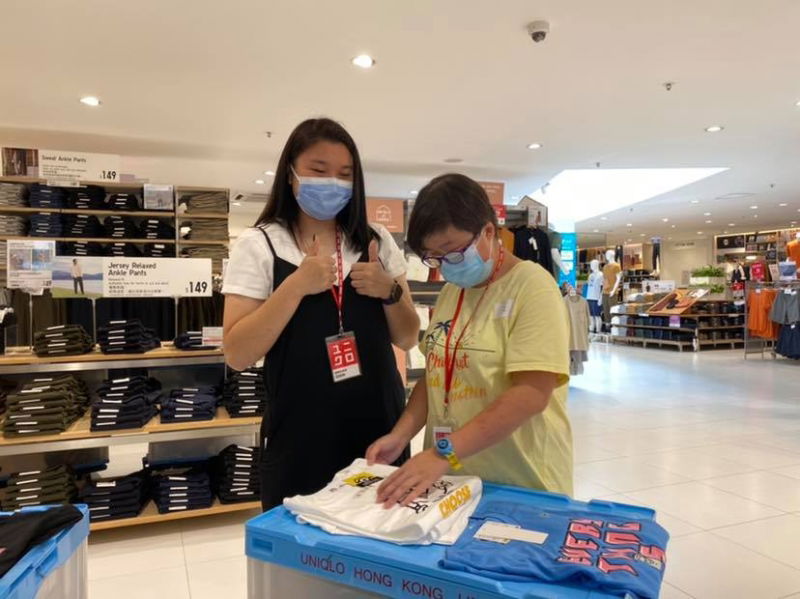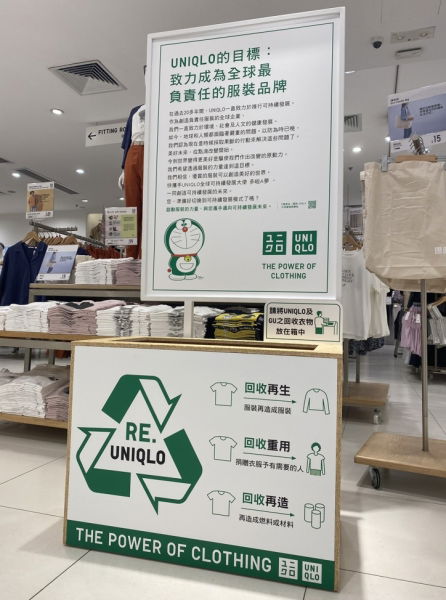
UNIQLO and PolyU unearth fashion perceptions of HK and Macau consumers
share on
Japanese global apparel retailer UNIQLO and the School of Fashion and Textiles of the Hong Kong Polytechnic University (PolyU) have joined hands to conduct a survey on consumer perceptions of sustainable fashion in Hong Kong and Macau, which explores the views and perceptions of consumers in the two regions on sustainable fashion and the changing consumption patterns brought about by the pandemic.
The survey results showed that overall consumer attitudes towards apparel retail brands in Hong Kong and Macau are linked to the brand's sustainable development goals (SDGs) vision and actions. In view of the COVID-19 outbreak, consumers have become more concerned about sustainable fashion, with more than 80% of respondents saying they would consider a brand's position and approach to sustainability issues when selecting clothing, and more than 60% saying they would be willing to pay a premium of 10% to 20% above the original price for a sustainable fashion product.


The results also unveiled that the pandemic has also increased consumers’ attention on the practicality and quality of fashion products, followed by price, and then appearance and personalisation.
However, while more than 70% of consumers are positive about sustainable fashion products and agree that sustainable fashion is a good idea, the percentage of those who like sustainable fashion products is relatively low (about 60%), indicating the appeal of such products has to be further strengthened.
About 45% of the respondents also tend to be conservative in their trust in apparel retail brands. The survey results reflected that the pandemic has affected the consumption patterns of consumers in Hong Kong and Macau. In particular, it was found that better awareness and understanding of sustainable fashion products and brand strategies would increase consumers' desire to purchase these products.
As sustainable fashion becomes increasingly important and mainstream, there is a need for greater consumer education and promotion and for apparel retail brands to change their business models from time to time in response to consumer expectations.
Survey results showed that over 80% of Hong Kong and Macau consumers understand the concept of “sustainable development”, and about 56% of them are aware of the 17 Sustainable Development Goals (SDGs) proposed by the United Nations. Compared to global consumers, although Hong Kong and Macau consumers' awareness of SDGs (56%) is higher than that of global consumers (49.7%), more than 40% of the respondents are still unaware of the concept, indicating Hong Kong and Macau markets need to continue in communicating the concept of sustainable development.
In terms of brands commitment, results also revealed that Hong Kong and Macau consumers, compare to global consumers, focus more on brand’s commitment on two SDGs namely “clean water and sanitation” and “no poverty”. However, consumers in Hong Kong and Macau tend to pay less attention to the SDGs of “quality education”, “responsible consumption and production” and “life on land”, which are ranked the most important to global consumers.
Furthermore, more than 80% of respondents believe that whether a product is sustainable will affect their selection of retail apparel brands.
Among them, respondents shared the three most important factors when selecting a fashion brand, especially since the outbreak of the pandemic, including reducing waste and environmental footprint in production or sales process; balancing product function and environmental impact; sourcing in a humane way.
The survey also revealed that 64% of respondents believe that the pandemic has made them more likely to buy durable clothing. At the same time, the respondents also said that during the pandemic, they paid more attention to practicality (66.4%) and product quality (50.7%), followed by price (47.7%), appearance (35.4%) and personalisation (30.1%). 43% of the respondents said that products with a long-life cycle is an important requirement for brands to meet the concept of "sustainable fashion".
Di Fan, assistant professor at PolyU’s School of Fashion and Textiles, who coordinated the survey, said: “An increasing number of fashion brands or industry experts have been paying more attention on sustainable development in recent years. We have seen the competitiveness of apparel retail brands gradually expand from product design and price to sustainability considerations, making ‘sustainable fashion’ more of a concern to consumers.”
He added that this change in consumer spending patterns can have a positive impact on the fashion industry’s existing business model, and this change in behavior is evidence of a general awareness of the environmental pollution caused by the fashion industry.Designed by PolyU’s School of Fashion and Textiles, the survey was conducted between late March and mid-April 2022 among 1,498 consumers from a wide range of age groups and occupations on the perceptions of sustainable fashion among consumers in Hong Kong and Macau.This joint release of consumer survey results marks the beginning of the long-term collaboration between UNIQLO and the School of Fashion and Textiles, PolyU.
Related articles:
Pop Mart launches co-branded collection with Uniqlo
UNIQLO brings Stylehint app to Singapore
share on
Free newsletter
Get the daily lowdown on Asia's top marketing stories.
We break down the big and messy topics of the day so you're updated on the most important developments in Asia's marketing development – for free.
subscribe now open in new window
